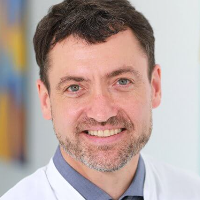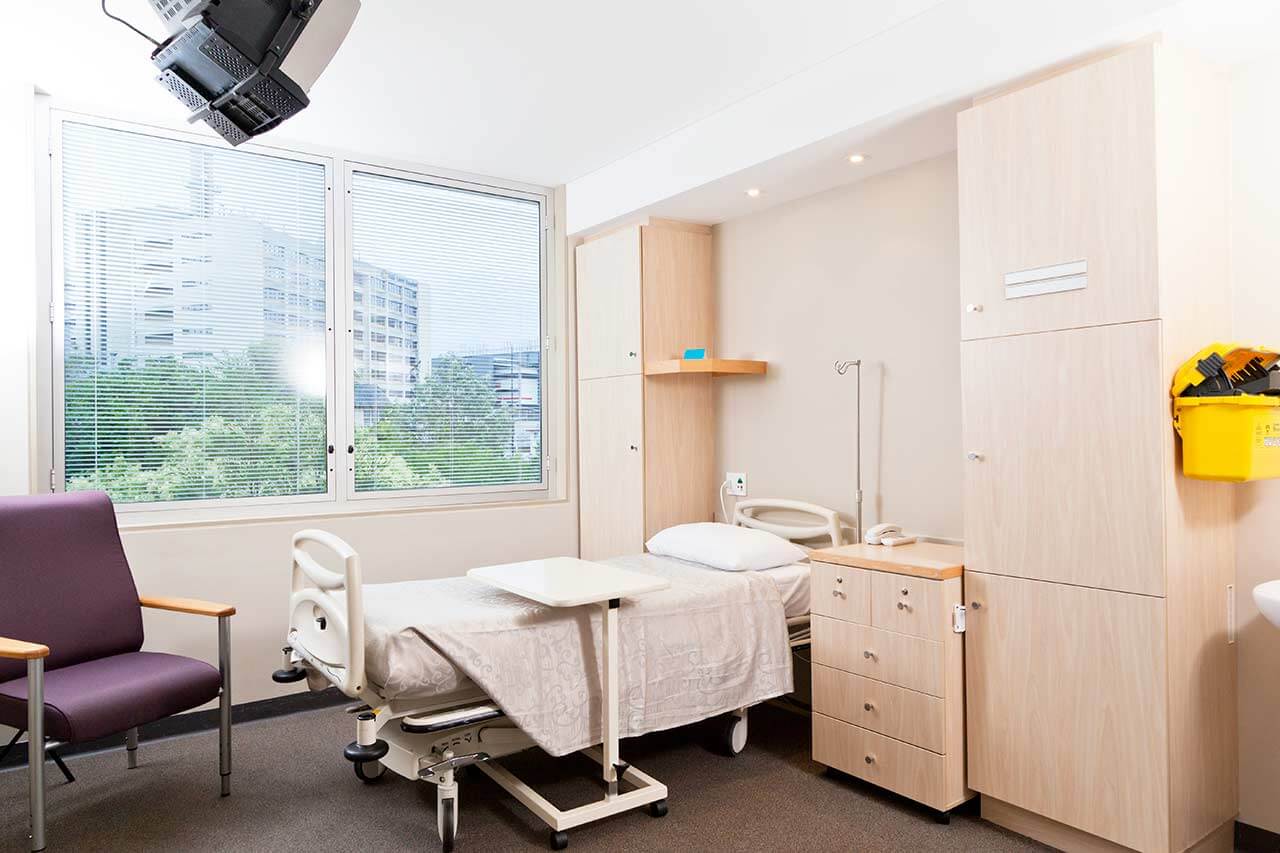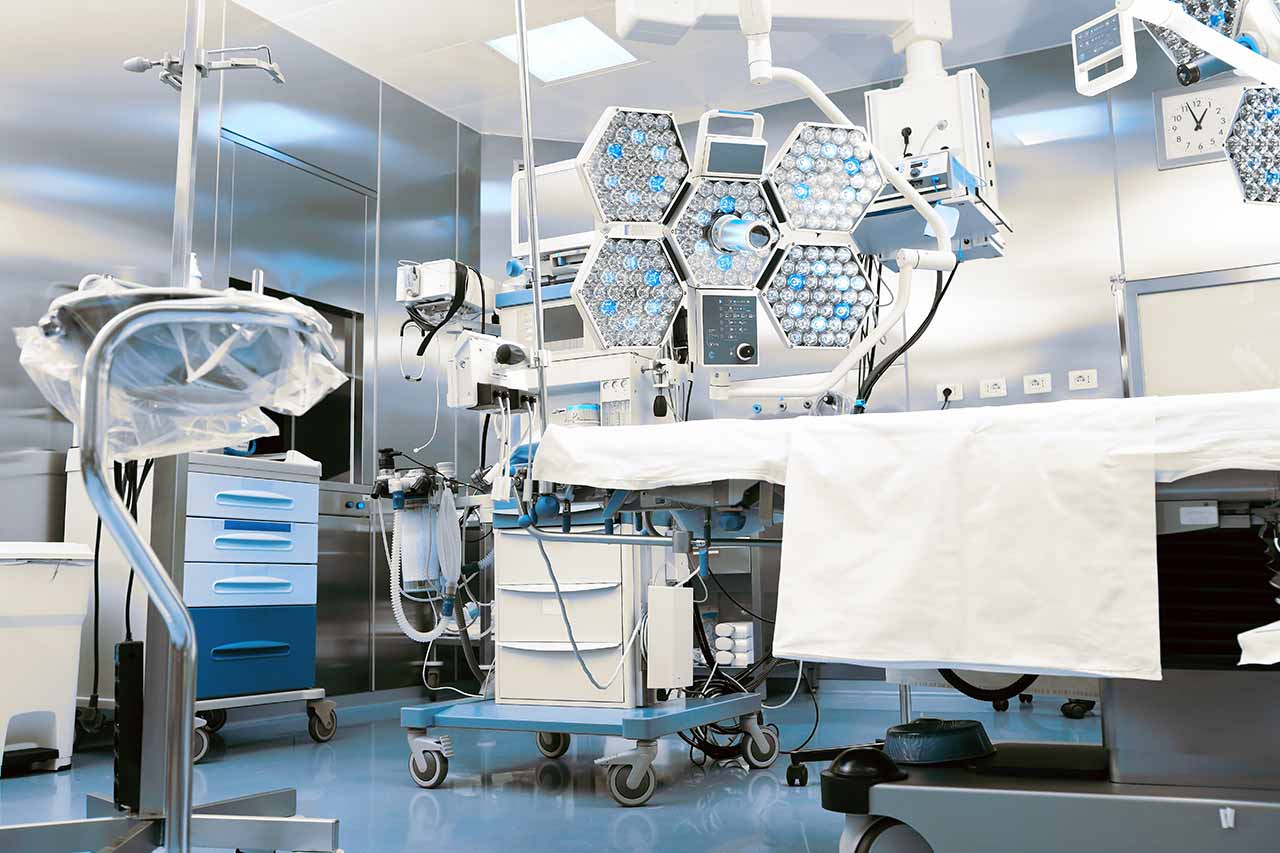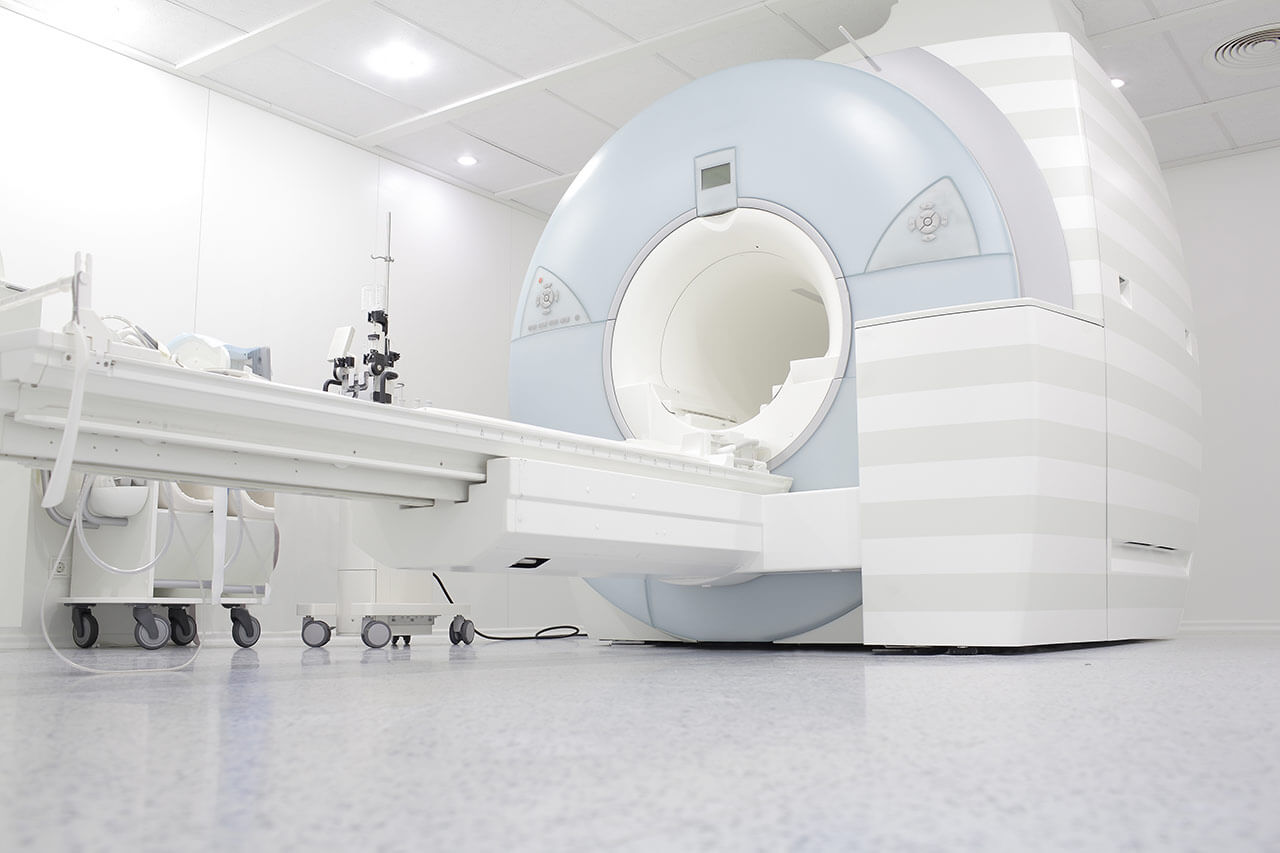
The program includes:
- Initial presentation in the clinic
- clinical history taking
- physical examination
- neurological and psychological status examination
- laboratory tests:
- complete blood count
- biochemical analysis of blood
- L-Dopa-Test
- CT/MRI scan
- rheoencephalography
- brain EEG
- single-photon-emissions-computer tomography
- consultation of related specialists
- symptomatic specific treatment
- the cost of essential medicines and materials
- nursing services
- control examinations
- full hospital accommodation
- developing of further guidance
Required documents
- Medical records
- MRI/CT scan (if available)
Service
You may also book:
 BookingHealth Price from:
BookingHealth Price from:
About the department
The Department of Neurology and Epileptology at the St. Lukas Clinic Solingen offers the full range of modern diagnostic and therapeutic options for patients with pathologies of the central and peripheral nervous system, including neuromuscular diseases. One of the department's key activities is the treatment of stroke. Patients receive medical care in a state-of-the-art Stroke Unit, the quality of which work is recognized by the prestigious LGA InterCert certification. The Stroke Unit has 12 beds with advanced monitoring systems for recording vital functions. In addition, the department offers the services of specialized outpatient clinics, for example, an outpatient clinic for botulinum toxin therapy, an outpatient clinic for multiple sclerosis. An integral part of work of the department's neurologists is the provision of medical care to patients with epilepsy. All the department's doctors are highly professional experts and make every effort to ensure that the treatment meets the needs and expectations of the patient. The Head Physician of the department is Prof. Dr. med. Marcel Dihné.
Along with the treatment of neurodegenerative diseases, movement disorders and dementia, the department deals with the therapy of pathologies of muscles (myopathies), synapses and peripheral nerves, as well as lesions of the anterior horns of the spinal cord. The department has a well-equipped electrophysiology laboratory where physicians can perform evoked potential tests, neurography and myography. In cooperation with the experts from related medical fields, special genetic tests, muscle and nerve ending biopsy are carried out.
The specialists in the field of epileptology are responsible for the treatment of various types of epilepsy, syncopes and other disorders of consciousness. The medical facility carries out differential diagnostics of epileptic seizures and seizures of another genesis, as well as clarifies the causes of the development of epilepsy. The EEG laboratory has a mobile digital measuring system, as well as a mobile device for continuous EEG monitoring and several computerized systems.
The key area of the department's work is also the treatment of inflammatory diseases of the central nervous system. The most common chronic inflammatory disease of the central nervous system is multiple sclerosis. To confirm the diagnosis, clinical neurological tests, computed tomography, neurophysiological studies and cerebrospinal fluid analysis are used. Inpatient therapy is based on high-dose cortisone pulse therapy, symptomatic treatment (for example, treatment of spasticity, fatigue), as well as physiotherapy and occupational therapy. Outpatient treatment is also possible.
A special focus of the department's experts is on stroke therapy. For this purpose, the department has a high-tech Stroke Unit awarded by the LGA Intercert certificate for its outstanding quality of medical care. The doctors of the Stroke Unit annually provide medical care to more than 1,500 patients with strokes of varying severity. Intracranial and extracranial duplex sonography, dopplerography, laboratory tests, electrophysiological studies, CT, MRI, including CT and MRI angiography are used to diagnose stroke and assess the volume of cerebral hemorrhage. After staying in the Stroke Unit, the patient is transferred to a regular patient room, where the necessary therapeutic measures continue and rehabilitation procedures begin.
The team of the department's neurologists has a successful experience in the field of botulinum toxin therapy. This type of treatment allows the patients to achieve excellent results for neurological pathologies accompanied by spasticity. In particular, these are stroke patients. Other indications for Botox injections include torticollis, facial hemispasm, blepharospasm, hyperhidrosis, hypersalivation, etc. Botulinum toxin therapy is carried out in a specialized outpatient clinic, which was established in cooperation with the University Hospital Duesseldorf. The effect of botulinum toxin therapy lasts up to three months, after which the drug can be injected again. In the course of treatment, doctors use high-quality botulinum toxin type A drugs approved by the specialized organizations.
The department's key clinical focuses include:
- Diagnostics and treatment of stroke
- Diagnostics and treatment of Parkinson's disease
- Diagnostics and treatment of multiple sclerosis
- Diagnostics and treatment of epilepsy
- Diagnostics and treatment of sciatic nerve pathologies
- Diagnostics and treatment of malignant brain tumors
- Diagnostics and treatment of neurological disorders accompanied by dizziness and impaired eye movement
- Diagnostics and treatment of various forms of dementia
- Diagnostics and treatment of other neurological disorders
Curriculum vitae
Professional Career
- Since June 2013 Head Physician of the Department of Neurology and Epileptology at the St. Lukas Clinic Solingen.
- May 2011 - May 2013 Senior Physician, Head of the Research Group, Hertie Institute for Clinical Brain Research, University Hospital Tuebingen.
- June 2004 - April 2011 Assistant Physician, Senior Physician and Head of the Research Group, Department of Neurology at the University Hospital Duesseldorf.
Higher Education and Postgraduate Training
- May 2011 - May 2013 Training in Neuroscience: epileptology, autoimmune encephalitis, status epilepticus, induced pluripotent stem cells; Hertie Institute for Clinical Brain Research, Department of Neurology, University Hospital Tuebingen.
- June 2004 - April 2011 Training in Neurology: clinical neurology, neurological intensive care, neural circuits; Heinrich Heine University Duesseldorf.
- November 2001 - June 2004 Training in Neuroscience: stem cells, neuronal regeneration; Center for Molecular Neurobiology Hamburg (ZMNH).
- June 1998 - October 2001 Study of Neurology, University Hospital RWTH Aachen.
- October 1991 - May 1998 Study of Human Medicine, RWTH Aachen University.
Clinical Interests
- Stroke.
- Epilepsy.
- Inflammatory diseases of the nervous system.
- Parkinson's disease.
- Multiple sclerosis.
Photo of the doctor: (c) St. Lukas Klinik GmbH
About hospital
The St. Lukas Clinic Solingen provides high-quality medical services at an international level, while the humane values of Catholicism are the fundamental principle of the work of the medical staff. The clinic has been successfully practicing for over 60 years, and during this time it has managed to save thousands of human lives. As of today, the clinic has the status of one of the leading medical facilities in Germany and regularly admits patients from other countries. The key focuses of the clinic are internal medicine, gastroenterology, cardiology, oncology and hematology, neurology, general and abdominal surgery, oral and maxillofacial surgery. The clinic is located on the territory of a natural reserve, which favorably affects the recovery of patients after treatment.
The medical center is part of the Kplus Group of Catholic hospitals. Within this group, it cooperates closely with other medical facilities located in Hilden, Hahn, Monheim am Rhein and Leverkusen. Such cooperation and exchange of experience allow doctors to provide their patients with top-class medical care. The clinic also pays attention to the training of future doctors and offers a wide range of opportunities for advanced training and retraining of personnel within the Kplus Group.
The medical team of the clinic consists of more than 550 employees. Doctors and nursing staff undergo a strict selection process, constantly improve their professional skills, exchange experience with colleagues from other reputable medical facilities in Germany – all this contributes to the provision of effective medical care to patients. The doctors of the clinic admit about 12,000 inpatients annually. In addition, every year, more than 17,000 outpatients receive medical care here.
The exceptionally high quality of treatment is confirmed by prestigious certificates. For example, the Department of Surgery is awarded with the DHG-Siegel quality certificate of the German Hernia Society, the Cancer Center Solingen is certified according to DIN EN ISO 9001 standard, the Stroke Unit of the clinic has the LGA Intercert certification, the Trauma Center is certified according to the standards of the German Society for Trauma Surgery (DGU).
Photo: (с) depositphotos
Accommodation in hospital
Patients rooms
The patients of the St. Lukas Clinic Solingen live in comfortable rooms with a modern design. Each patient room is equipped with an ensuite bathroom with shower and toilet. The standard patient room includes an automatically adjustable bed, a bedside table, a wardrobe for storing clothes and personal belongings, a table and chairs for receiving visitors, a TV, a radio and a telephone. The rooms also have access to Wi-Fi.
Meals and Menus
The clinic has developed a high-quality nutrition program. Breakfast and dinner are served buffet style. For lunch, there is a daily changing full menu, as well as a choice of dietary and vegetarian menus. Also, if desired, one can order soup and dessert, afternoon coffee with pastries. In addition, Lukas Cafe on the ground floor of the clinic offers a large variety of food and drinks. A terrace for up to 20 guests is available in summer. The cafe is open from 7:00 to 18:00 everyday.
Further details
Standard rooms include:
Religion
Both catholic and gospel masses are held in the chapel on the ground floor.
Accompanying person
Your accompanying person may stay with you in your patient room or at the hotel of your choice during the inpatient program.
Hotel
You may stay at the hotel of your choice during the outpatient program. Our managers will support you for selecting the best option.




